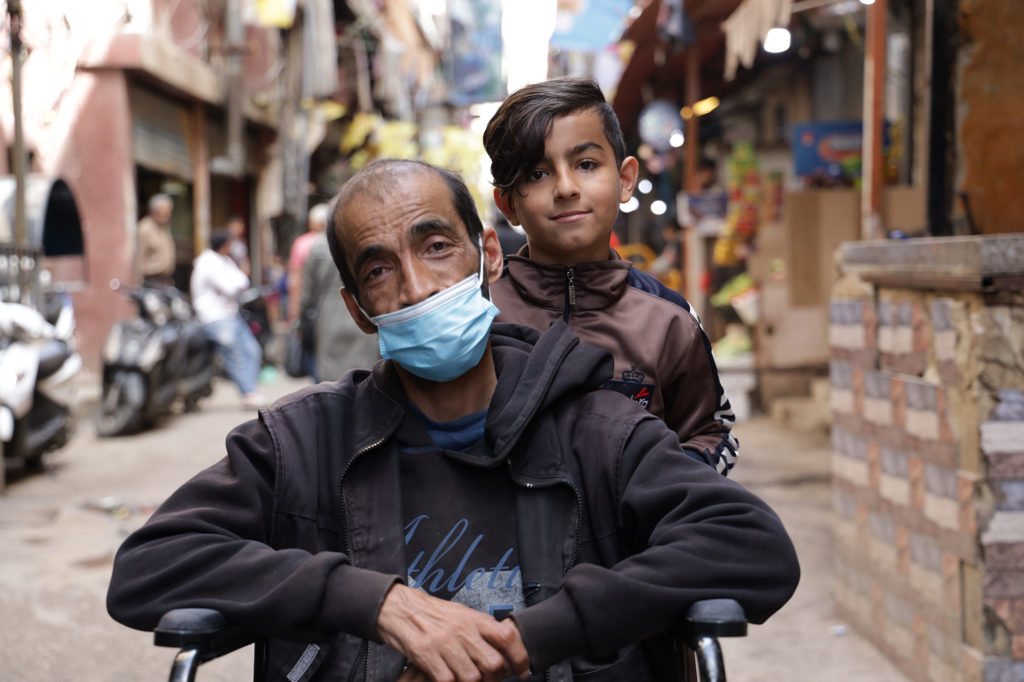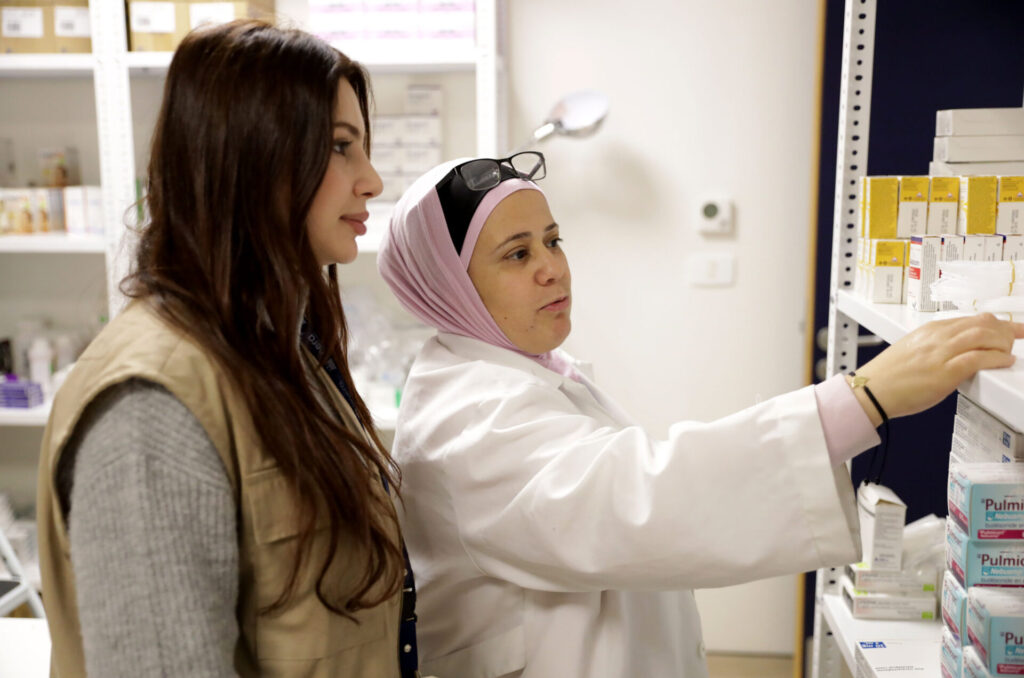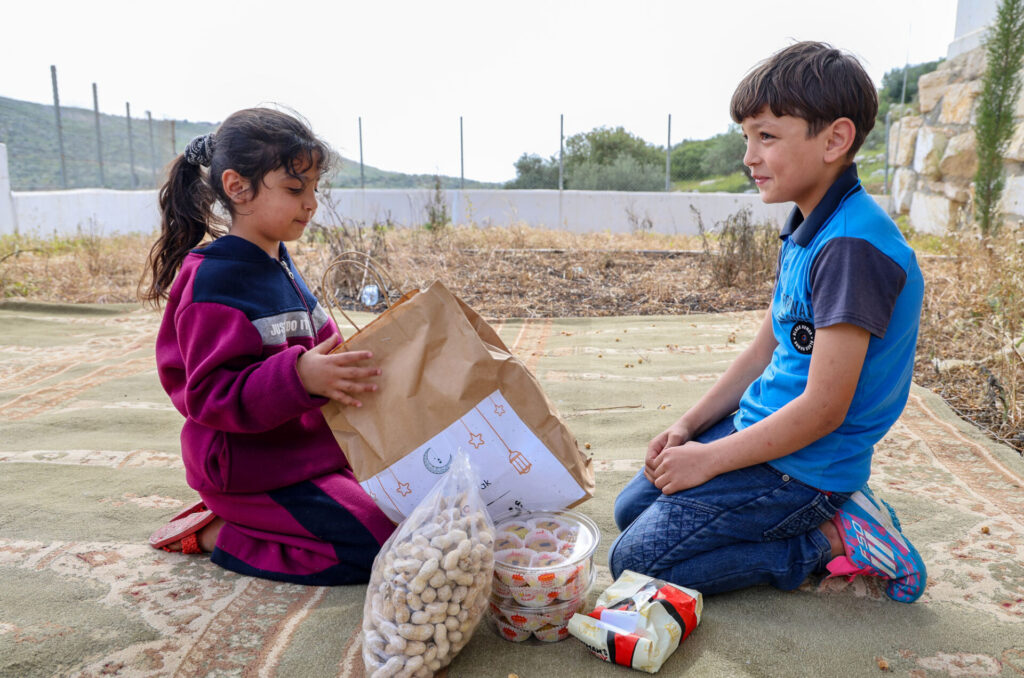HEALTH
Wheelchairs Help The most Vulnerable Regain Mobility
May, 2021
A recent shipment of mobility devices donated by Wheels to Heal to Lebanon allows refugees and other marginalized people with physical disabilities to live with greater independence.
No one leads a life free from troubles. We all face personal hardships and challenges. But some people’s scars are deeper than others. Unfortunately, the place you are born and the kind of life you are born into often determine the severity of those scars.
Anera provides essentials for those deprived of basic human rights and necessities. We help people without safety nets living on the fringes of society. They are refugees, people with special needs, and those who live below the poverty line.
Shatila Palestinian Refugee Camp in Beirut, Lebanon is one of the communities where Anera works. Refugees with physical disabilities residing in the camp struggle in the absence of services and proper care to meet their needs. The government does not provide health and social services, so they rely fully on nonprofits like Anera to help them.
Anera’s partnership with Wheels to Heal is therefore of utmost importance. Together, we can ensure that we reach more and more vulnerable people from the physical disabilities community.
Every year, Wheels to Heal sends a container filled with thousands of accessibility equipment items, from crutches to wheelchairs. Anera delivers the equipment to those who need them. The most recent shipment will provide 684 people with disability aids and will be distributed through Anera’s local partners embedded in disadvantaged communities all over Lebanon.


People With Disabilities Who Now Have Mobility Aids
Iman is a Syrian refugee and mother living in Shatila Camp. Her son has suffered from cerebral palsy since birth.
“He was eight months old when his condition was diagnosed. He’s now 13 years old. He was receiving long-term treatment in Syria. But with the outbreak of the war and our escape to Lebanon, we had to stop the treatments, and his health has deteriorated.”
Before receiving the wheelchair, he used to sit in a bucket and drag himself around the house. Iman says, “He is a child — he needs to move. But he was trapped.”
Aayda is a 29-year-old Palestinian refugee, also living in Shatila. A car struck her four years ago while she was out for a stroll in the ancient city of Byblos.
“I fractured my spine, and my kidneys failed. I’m still in constant pain,” Aayda says. “Mom and I live alone here. We rely on God, NGOs and some kind people who help us with our daily tasks and errands.”
Aayda can no longer walk — with support from a cane she is able to stand. Before receiving her Wheels To Heal wheelchair, Aayda’s mom had to carry her almost everywhere.
She says, “I used to fall all the time — at least now Mom can take a break!”




“I want to thank you [Wheels to Heal and Anera]. I hope that we, people with physical disabilities, get the care and attention we need during these hard times.”


Majed is a 44-year-old Syrian refugee who has suffered from quadriplegia since birth. His condition progressively deteriorates as he ages. The Syrian crisis that forced him to flee to Lebanon added yet more stress to his situation.
Majed says,
“I sell bottled water, tissues and masks on the Karantina highway with my son. But unfortunately, with the pandemic and the financial collapse, my life and the lives of many Syrians and Lebanese are getting worse by the hour. Especially with the huge increase in the prices of food and medicine and basic daily needs… We either eat or get medicine — we can’t do both.”
Majed used to own an old wheelchair, but it was badly worn. “This new chair is more comfortable and easier to use. As my condition worsens, I’m hoping to get an electric actuator for the chair.”


